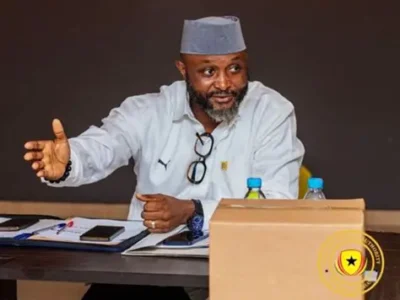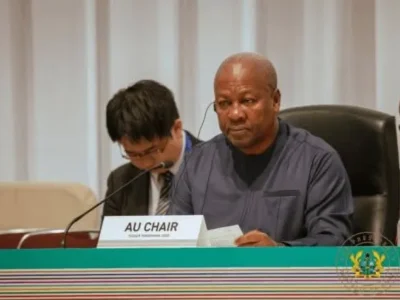
Technical Advisor at the Ministry of Finance, Dr. Theo Acheampong, says the 2026 Budget Statement has been crafted to solidify ongoing reforms and boost productivity as Ghana enters a new phase of economic rebuilding.
Speaking on Citi FM’s The Big Issue on Saturday, November 15, after the budget presentation to Parliament, Dr. Acheampong said recent economic setbacks made it necessary for the government to “fundamentally” reset the economy and strengthen structural reforms
We have come from a particular place, a place where the severe challenges that we had with the economy, particularly over the 2023- 2022 period and then coming into 2024, had to be fundamentally addressed. What the budget has sought to do is really anchor and drive some of the reforms that have been started and also use that for enhanced productivity,” he said.
He noted that the 2026 Budget aims to restore confidence, stabilise key indicators, and position the economy for sustained growth.
Referencing the Finance Minister’s presentation, Dr. Acheampong highlighted three strategic priorities that will guide the government over the next year and beyond.
“So if you look at the statement the minister made in the house in paragraph 28 of the big budget itself — ‘Mr Speaker, over the next year and beyond, government will focus on three strategic priorities for growth, for jobs and for transformation.’
The first one being consolidating macroeconomic stability. The second one being accelerating transformation and job creation and the third one being strengthening security in the social sectors for inclusive growth,” he explained.
His analysis aligns with the direction outlined by Finance Minister Dr. Cassiel Ato Forson, who presented the 2026 Budget and Economic Policy under the theme “Resetting for Growth, Jobs, and Economic Transformation.”
Dr. Forson described the budget as a shift from “recovery to transformation, resilience to productivity, and stability to jobs,” pointing to restored fiscal discipline, a stabilised cedi, reduced inflation, and improved investor confidence. He characterised the moment as a national “reset” and “a rebirth from the ashes of a daunting inheritance.”
“Confidence is returning. The Black Star is rising once more. Ghana is back, strong, stable, and full of hope,” Dr. Forson told Parliament.
The budget prioritises responsible debt management, infrastructure development, agricultural investment, and improvements in education, healthcare, and national security.
Parliament also received several statutory reports and key legislative instruments, including the Value for Money Bill, amendments to the VAT Act, and the repeal of the COVID-19 Health Recovery Levy.
Dr. Acheampong concluded that the impact of the next phase will depend on the effective implementation of these reforms to translate stability into higher productivity, stronger institutions, and broad-based economic transformation.





